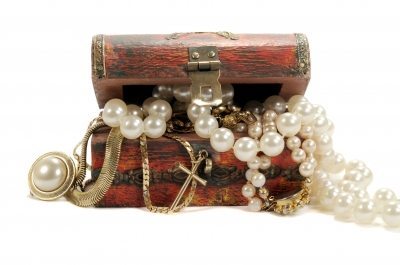How to Choose a Jewelry Appraiser
June 20, 2014
- Have you recently inherited some jewelry and you’d like to have it appraised?

Image courtesy of “Gualberto107”; freedigitalphotos.net - Trying to determine whether to sell or hold onto your jewelry?
- In need of an appraisal for insurance purposes?
- Need valuation for a divorce or estate plan?
1. Fees
It is unethical for a jewelry appraiser to charge fees based on the ultimate value of the jewelry. Only choose someone whose fee is based on the estimated time spent to appraise the pieces, or the number of items being appraised. Be sure to get an estimate up front.2. Clear Explanations
A good appraiser will provide a clear explanation of the grading system he or she uses to evaluate your diamonds or gemstones. Do not accept an explanation in language you do not understand. The appraiser should also explain the appraisal report’s limitations of use. For example, an appraisal performed for insurance purposes can only be used for insurance, not for an estate plan or something else.3. Professional Reports
Appraisals are handled differently depending upon their intent. The appraisal report should reflect the methodology used to perform the appraisal for its specific purpose. The statement of total value should be fashioned in a way that does not allow for any modifications (such as with a seal). The report should contain specifics such as:- description of all characteristics of the item – weights, grades, measurement of components, color grade (determined using comparison gemstones)
- notes on gemstone treatments
- notes on type of setting
- statement of whether gemstone is natural or synthetic
- photograph of the item
4. Check the Appraiser’s Resume
The important question to an appraiser is not “What do you charge?” but rather “What qualifies you to appraise my personal property?” A professional appraiser should have taken and passed courses and examinations in evaluation and valuation, principles and business practices, appraisal ethics, standards, and report writing. They should also keep up with industry changes and developments through continuing education. Check your appraiser’s stated association memberships by going online. Also be sure the appraiser has “errors and omissions” insurance, which means if they make an error on the appraisal report, you can still be compensated for your jewelry. The following are reputable memberships and certifications to look for:- American Gem Society
- National Association of Jewelry Appraisers
- American Society of Appraisers – look for certifications of Accredited Senior Appraiser (ASA) and Master Gemologist Appraiser
- Gemological Institute of America graduate

